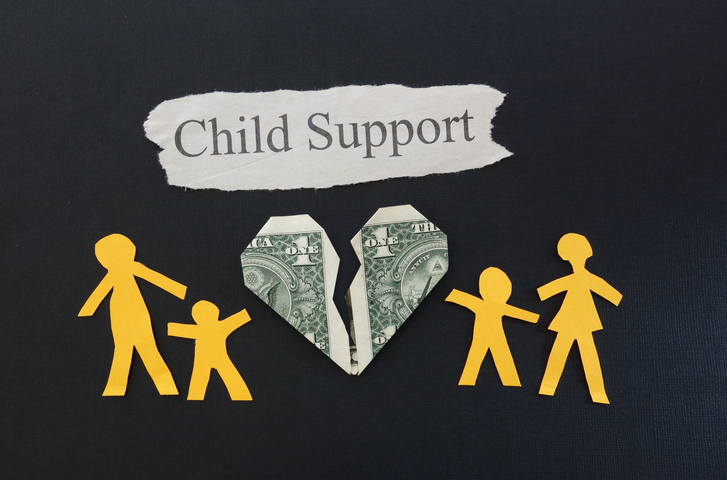In many California divorces, parents aim for amicable resolutions, and one such agreement may include deciding that no child support is necessary. However, while California courts prioritize parental autonomy in divorce settlements, not every California no child support agreement passes legal scrutiny. Under certain conditions, courts have the authority—and obligation—to reject such arrangements. The question is not just whether parents agree, but whether the agreement truly serves the child’s best interests.
This article explores the specific circumstances under which a California no child support agreement may be denied by the court, why judicial oversight exists, and how to ensure that such an agreement complies with California law.
Why Parents Might Seek a No Child Support Agreement in California
In cases where both parents share equal parenting time, earn similar incomes, or have unique financial arrangements, they may believe child support is unnecessary. Some may argue that financial fairness is already built into their custody agreement, or that both households will meet the child’s needs independently.
For example, if both parents agree to alternate school supply costs and share health insurance premiums, they might assume a child support order is redundant. But the court doesn’t simply rubber-stamp parental preferences—it evaluates whether the arrangement protects the child’s legal and material rights.
Understanding Court Authority Over Child Support Decisions
In California, child support is considered a right belonging to the child, not to the parents. Even when both parties fully agree to waive child support, the court must assess whether doing so aligns with the state’s public policy of ensuring children receive adequate financial support.
California Family Code Section 4053 outlines legislative intent, including a principle that “both parents are mutually responsible for the support of their children.” The court therefore has a duty to ensure that any California no child support agreement doesn’t undermine this obligation.
Judicial Denial Based on the Child’s Best Interests
The cornerstone of family law in California is the best interest of the child standard. A judge will review a proposed California no child support agreement in light of this doctrine. If the court determines that waiving support may put the child’s needs at risk—now or in the future—it will likely deny the request.
This evaluation is especially stringent when one parent has significantly more income, or if there is a history of unreliable financial behavior. The court may suspect that the agreement is coerced or signed under financial pressure, which also puts its validity at risk.

Income Disparities and the Appearance of Inequity
Agreements are most likely to be denied when there is a notable financial imbalance between the parents. If one parent earns considerably more, the court may assume that a waiver of support unfairly burdens the lower-earning parent and indirectly harms the child’s living conditions.
California law emphasizes equal responsibility but also proportionate contribution. If one party is in a better position to contribute financially, the state expects that contribution to materialize. Even mutual agreement does not override this presumption.
Shared Custody Is Not a Guarantee of Approval
Some parents believe that if they share custody 50/50, the court will automatically approve a California no child support agreement. However, equal time-sharing alone does not eliminate financial disparity or child-related expenses.
Judges are tasked with determining if both homes offer comparable standards of living. If one parent struggles financially—even with equal custody—the court may still require child support to prevent the child from experiencing unnecessary hardship in one household.
Potential Denial Due to Lack of Written Justification
When submitting a proposed judgment or stipulation involving no child support, parties must include detailed financial disclosures. California courts rely on full transparency. A vague or incomplete agreement that lacks justification for the waiver will likely be denied.
Judges want to see specific explanations: Are both parents equally financially secure? How are child-related expenses divided? Is there an existing co-parenting schedule that offsets financial strain? Absent such clarity, the court may intervene to impose standard guidelines.
Modification of Child Support Cannot Be Barred
Even if a California no child support agreement is initially approved, the court retains ongoing jurisdiction. Parents cannot waive future support modifications. Any clause that attempts to block one party from seeking future support adjustments is unenforceable.
For instance, if financial circumstances change—such as job loss, disability, or increased cost of living—the court can and will revisit child support, regardless of any prior agreements. This flexibility is embedded in the law to protect children’s evolving needs.

Agreements Based on Fault or Marital Misconduct Are Not Enforceable
Courts will automatically reject agreements that link the waiver of child support to past marital misconduct. California is a no-fault divorce state, and child support determinations are based on current financial realities and parenting responsibilities, not punitive considerations.
If one parent agrees to waive child support in exchange for concessions related to adultery or abandonment, the court will likely view the agreement as improper and deny approval. The child’s welfare must remain separate from adult grievances.
Court Denial of Agreements Based on Outside Influence or Duress
If evidence arises suggesting that one parent was pressured, manipulated, or misled into waiving child support, the court will deny the agreement. Consent must be fully voluntary and informed. The court may even hold a separate hearing to determine the agreement’s validity.
This ensures that economically vulnerable parties—often those with fewer legal resources—are not cornered into agreements that hurt their child or themselves long-term.
Denial Due to Public Assistance Involvement
Any case involving government financial assistance automatically removes the option to waive child support. If either parent receives benefits such as CalWORKs, Medi-Cal, or food stamps, California’s Department of Child Support Services may become involved.
In such cases, the state effectively steps into the role of enforcer, and courts will not allow a California no child support agreement to override state interests. The government seeks reimbursement for public funds used for child welfare and cannot allow parents to sidestep financial duties.
Inadequate Parenting Plan May Trigger Court Rejection
A strong, detailed parenting plan is often necessary to support any California no child support agreement. If the proposed time-sharing plan is vague, unrealistic, or disputed, the court may decline to approve a waiver of support until these custody details are clarified or resolved.
A judge must be able to verify that both parents are equally involved and that child-related duties are being divided fairly. Without such assurances, denying the agreement is considered a safeguard against future disputes and litigation.

Alternative Financial Arrangements Must Be Well-Defined
In some cases, parents might attempt to replace child support with direct payments for childcare, education, or health expenses. This can work—if and only if—those contributions are detailed and enforceable.
The court needs to see written proof of how these financial responsibilities are shared. If no such documentation exists, or if the arrangement is too informal, the judge may view the agreement as insufficient and impose standard support calculations instead. More guidance on state-required support structures is available through the California Courts self-help portal.
Long-Term Considerations: What the Court Must Weigh
The court looks beyond present income and considers the potential for long-term financial instability. For example, if one parent is self-employed or works in a seasonal field, the court may question the sustainability of a waiver.
Judges evaluate whether children could face a future lack of support due to unpredictable income shifts. In these cases, denying a California no child support agreement becomes a preventive action to protect the child’s future needs.
Recent Legal Guidance and Trends
California family courts are becoming more cautious about allowing child support waivers, especially in high-conflict or economically imbalanced divorces. New judicial interpretations reinforce the principle that child support is a continuing obligation, regardless of mutual agreements.
Legal commentators have emphasized the shift toward stricter enforcement of state guidelines, with courts increasingly unwilling to approve waivers that could jeopardize a child’s financial stability. Anyone attempting to create a California no child support agreement should understand the full legal context in which judges evaluate these requests. Additional context is available through the California no child support agreement resource provided by family law professionals.
Courts Scrutinize Unbalanced California No Child Support Agreements
Courts closely examine any California no child support agreement that appears one-sided or significantly benefits one parent more than the other. Even when both parties claim the waiver is voluntary, judges are trained to detect arrangements that may be unfairly negotiated. If one parent sacrifices financial security to avoid confrontation or expedite the divorce, the agreement will likely be rejected. The court sees through these trade-offs and prioritizes whether the child’s long-term needs are being properly funded.
Public Policy Discourages Avoiding Support Obligations
California’s public policy strongly discourages parents from sidestepping child support through informal deals. Even if both parents maintain good intentions, the court treats the child’s right to financial support as non-negotiable. A California no child support agreement cannot contradict public policy, especially when the agreement risks compromising healthcare, housing, or educational opportunities for the child. Any suggestion that parents are attempting to minimize financial obligations unlawfully will be met with court intervention.
Future Needs of the Child Remain a Judicial Priority
A critical reason courts may deny a California no child support agreement is that children’s needs evolve. What appears fair at the time of divorce may not hold true in the coming years. Judges frequently reject these waivers because they eliminate flexibility in addressing future needs like medical care, therapy, or college preparation. Denial ensures that the court retains the authority to adjust support as the child grows.
Judicial Oversight Prevents Long-Term Financial Imbalance
A California no child support agreement can create an unstable financial future if not carefully structured. Courts view child support as a mechanism for balancing household resources. If one parent’s home deteriorates financially while the other flourishes, the child’s well-being may suffer. This potential imbalance is a major reason judges deny these agreements—children should not be collateral damage in a financial compromise between adults. When evaluating a California no child support agreement, the court is ultimately ensuring that both parents are held equally accountable for providing financial stability in both households.
Conclusion: Protecting the Child’s Right to Support Above All
In California, courts are tasked with more than just validating divorce agreements—they must uphold the legal and moral responsibility to protect children’s welfare. No matter how reasonable or mutually acceptable an arrangement may appear, a California no child support agreement can and will be denied if it does not meet the state’s child support standards.
Parents seeking such agreements must prepare for thorough judicial review. This includes presenting clear documentation, ensuring income transparency, and focusing on the child’s long-term well-being. Courts will always prioritize the child’s best interests over parental convenience or cost-saving desires.

Leave a Reply